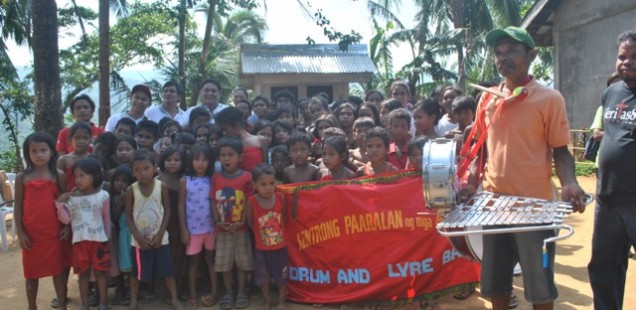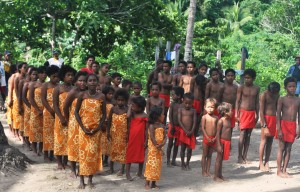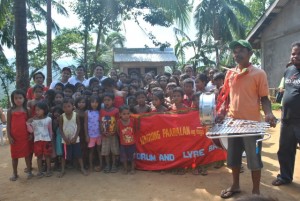
Proud to be Agta Dumagat (The Philippines)
The Agta Dumagat of the southern Sierra Madre mountain range, in the Philippines, are one of the ancient Negrito ethnic groups with a hunter gatherer background.
Until very recently, the only “educational content” available to Agta Dumagat children was entirely designed for an urban middle class reality. As it was extremely hard for Agta Dumagat students to relate to it, the programme was literally placing them at an early huge disadvantage. Beyond that, schools also would alienate kids from their communities’ forest orientation, related values, culture, knowledge and skills, while acting as powerful agents of acculturation… to the low end of the mainstream.
The pilot project supported by the PKF Foundation aims at boosting the Agta Dumagat children’s self-esteem and ensuring that they have a head start in their voyage through the educational system, while securing uninterrupted intergenerational transfer of traditional knowledge, practices and belief systems.
The initiative will be implemented in two Agta Dumagat schools, run by Sentrong Paaralan ng mga Agta (SPA) in General Nakar, Quezon Province. It will consist of the following activities:
- Development of a holistic, bilingual, illustrated entree workbook for first graders, entitled “Proud to be Agta Dumagat” and covering (however briefly) such subjects as culture, history, ecology, health and nutrition and geography, as well as the interconnections between those subjects. The booklet will be composed with ample inputs from elders, students and teachers. This will be an attractive starter publication, which steers close to the children’s day-to-day experiences.
- Reproduction and diffusion of a complete set of other new educational materials with much enriched local content for all subjects/grades. These materials already have been prepared with assistance from the Southern Luzon State University, but so far there was no budget available for printing copies for all teachers/subjects/grades.
- Introduction of the materials in 2 pilot schools and sharing of results with other elementary schools.
- Dialogue with Department of Education on follow-up, including for adaptation of the school calendar to better fit with the communities seasonal rhythm and issues related to extra-curricular activities, e.g. crediting students for joining their parents on extended foraging/learning trips.
- Reflecting upon the results and reporting for numerous media.






Hi, you can contact the Tribal Center for Development Foundation
E-mail Address: tribalcenterdev@yahoo.com
Tel.: (63) (042) 535 – 2453
Ramcy C. Atoveza – TCD Executive Director
Wilma C. Quierrez – SPA Elementary School Principal
Good luck,
Josiane Olff-Nathan
Can you give us a contact person of agta IP?